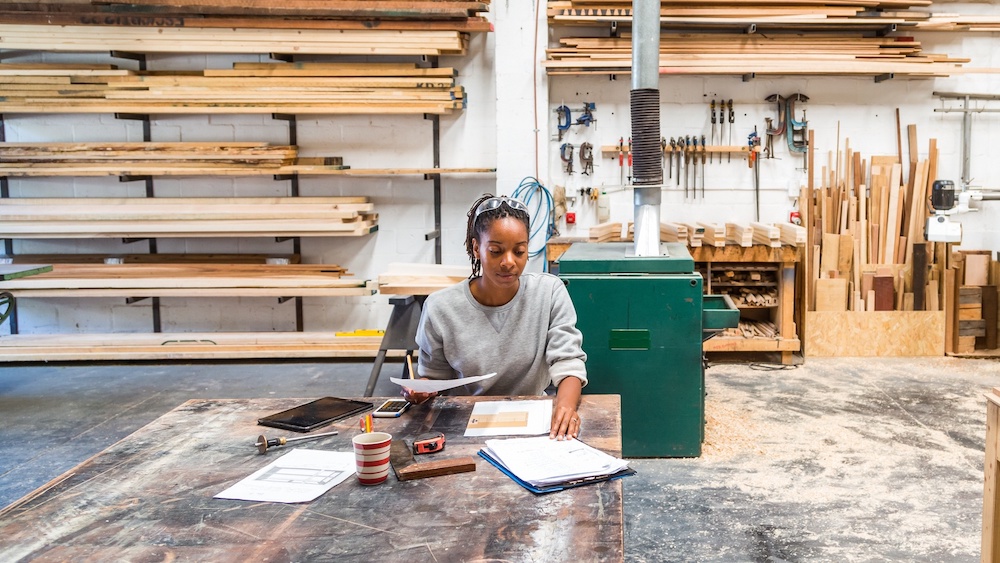If you’re interested in sharing your opinion on any cultural, political or personal topic, create an account here and check out our how-to post to learn more.
____
Each year, Black History Month brings efforts to spotlight and bolster support for Black-owned businesses. Especially following a year that has highlighted the fragility of our lives, particularly for Black and brown communities, and a reckoning for our country at large, visibility into the lack of economic advancement for Black people in this country is finally in the public consciousness and people and companies are trying to find their way to help. This month, Google launched a new feature that makes it easier to find and support Black businesses. Good Morning America dedicated their “Deals & Steals” to highlighting Black-owned small businesses, and Yelp has created a list featuring the highest-rated Black-owned restaurants across the country.
Though driving consumers to Black products and services is well-intentioned and has a spiking impact on these businesses in the short-term, revenue campaigns alone will not sustain business for the long-term nor result in the long-term economic justice Black people need. The murders of George Floyd, Breonna Taylor, Ahmaud Arbery and countless others, and the ensuing protests that followed, led to Black businesses seeing huge spikes in support over the summer, but after, sales at many Black businesses plummeted back to the pre-COVID rates. With more than 40% of Black-owned businesses having closed last year due to the pandemic, Black businesses need the sustained support and structural changes, outside of the waves of support tied to observances or tragedies, if they’re going to bounce back from the devastation of COVID-19 and thrive long into the future.
Because of the hardships of systemic racism and the social structures that allow them to persist, the Black business community has been historically underserved, marginalized and adversely affected by persistent poverty and inequality. Eight out of 10 Black businesses fail within the first 18 months they’re open — and that’s without a global pandemic shutting down most of the economy. Getting approved for a loan can be nearly impossible for many — from 2007 to 2017, more than half of Black-owned companies got turned down for loans, a rate twice as high as white-owned businesses. Black applicants are also declined mortgage loans at a rate of 80% higher than white applicants. And discriminatory housing policies like redlining have kept Black people from accumulating wealth through the housing market, limiting the wealth networks of Black entrepreneurs. All told, Black Americans have yet to experience an economy that is inclusive.
We need solutions that match the depth of the problem. What we know is that the one-size-fits-all solutions that often come from policymakers at the federal, state or local levels rarely consider the specific and unique needs of Black communities and, particularly, Black businesses. Fueling Black business will require leaders in financial institutions, philanthropy, government, corporations, and investors to align and collaborate towards a clear set of goals that address systemic barriers.
Here’s how. In addition to federal and state stimulus programs, larger financial institutions must not only make up for historic neglect of Black communities and businesses, but invest significantly more in the entire ecosystem of Black businesses, neighborhoods and economic infrastructure. Local Black-owned banks and organizations are successful in supporting and sustaining Black businesses, but they need more resources to continue addressing the precarity of Black businesses nationwide. Funders must also evolve from a model where they provide technical assistance with logistical tasks, such as grant and loan applications, to a model where genuine relationships are cultivated with trusted advisors, ensuring the equation for business support includes a combination of financial, intellectual and relational capital aligned for long-term success.
Furthermore, injecting equity-like capital, not just debt, into business’ capital stacks is key in helping to lessen the blow during economic downturns, such as a global pandemic, and continued community investments are needed to support the growth of Black-owned businesses, particularly in predominantly low-income communities and those with high levels of gentrification.
While these solutions cannot be implemented immediately, there are components that can be instituted on a community-by-community basis as we have seen and done in our own communities around North Carolina. The results have brought meaningful, qualifiable, and replicable adjustments to the economic and social ecosystems that support Black entrepreneurs, their ventures, and the communities of which they are a part.
One way to mimic this is for policymakers, banks, investors and foundations to look at the demographic makeup of the communities in which they are based and dedicate their resources in parity to the Black population. In North Carolina that looks like investors investing 22% of their funding into Black and minority-owned businesses and communities. Although this investment will look different across localities, solutions based on community-need can prevent COVID-19 from irreparably impacting an already neglected sector.
The potential economic and social returns that strategic investment in Black businesses can have for individual business owners, local communities and the overall economy warrant moving beyond sporadic giving. The underrepresentation of Black businesses is costing the U.S. economy millions of jobs and billions of dollars in unrealized revenues. But if Black businesses posted similar numbers to non-Black businesses, the country would realize significant economic growth. Instead of looking to the next observance or tragedy, let’s build a structural ecosystem that supports Black businesses from their onset and gives them the tools they need to survive along the way.
